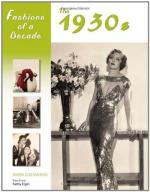|
This section contains 285 words (approx. 1 page at 300 words per page) |

|
New Dealers also kept their distance from educational reform because of a disagreement in temperament between them and professional educators. Before the Depression professional educators tended to be middle-class conservatives, closely allied with local business elites. They often saw their task as one of "elevating" the children of minorities and ethnic groups into the realm of middle-class values, which in the 1920s meant imparting a rural, Protestant, teetotaling — in many ways culturally Republican — ethos. The New Dealers had a different educational sensibility, one given less to moral instruction than to vocational education. Professional educators talked about values; New Dealers talked about skills. Professional educators focused on instruction for the academically gifted; New Dealers focused on education for the masses. Many professional educators considered blacks and other minority groups incapable of education beyond a certain level; New Dealers targeted minorities for instruction, teaching 1.3 million...
|
This section contains 285 words (approx. 1 page at 300 words per page) |

|




